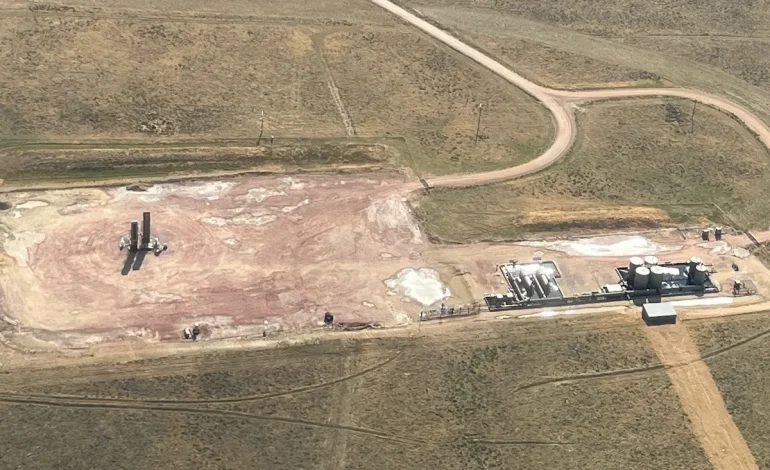The Wyoming Supreme Court is set to weigh a legal dispute that could reshape how sales tax exemptions are applied to the state’s energy sector, with millions of dollars potentially at stake for local governments, WyoFile reports.
At the center of the case is Merit Energy Company, which argues it is entitled to a $3 million sales tax refund for electricity used to move oil and gas through pipelines from 2020 to 2023.
The case follows a ruling earlier this year by the State Board of Equalization, which sided with Merit. The Wyoming Department of Revenue has since appealed, asking the Supreme Court to reverse that decision. The outcome could have significant financial implications for oil- and gas-producing counties that have received sales tax revenues based on the current interpretation of state tax law.
Electrical utility provider PacifiCorp is also involved in the case, seeking to recover the refund on behalf of Merit. A win for Merit and PacifiCorp could lead to similar claims from other companies in the industry, potentially prompting tax revenue “clawbacks” from local governments.
For instance, Park County officials reported last year that they could be on the hook for repaying approximately $743,000 if the exemption is upheld. Officials across the state are monitoring the case closely, as it could affect counties wherever oil and gas production occurs.
The case centers around a state sales tax exemption for electricity or fuel used in the “transportation” of tangible goods by pipeline or railroad. Merit contends that it qualifies as a transportation company because it moves oil for other entities from the wellhead to market using pipelines powered by electricity. In legal filings, Merit compared its operations to that of a railroad or trucking company.
“Merit is in the oil and gas transportation business,” the company stated in a recent court brief, arguing it is paid specifically to transport oil rather than simply gather and produce it.
However, the Department of Revenue disputes this classification, citing Board of Equalization Vice-Chairman Martin Hardsocg’s dissent. According to Hardsocg, the activity described by Merit is more accurately defined as “gathering,” a function tied to production rather than transportation, and thus not eligible for the tax break.
The legal debate is set against the backdrop of a newly passed state law — House Bill 311 — which clarifies that beginning July 1, utility purchases for transporting oil and gas via pipeline will indeed be exempt from sales tax. Regardless of how the court rules, this statute will enshrine the exemption moving forward, although it does not apply retroactively.
While the court has not yet scheduled a hearing date, the decision will likely set a precedent for how similar claims are handled across the state.










The latest news in your social feeds
Subscribe to our social media platforms to stay tuned